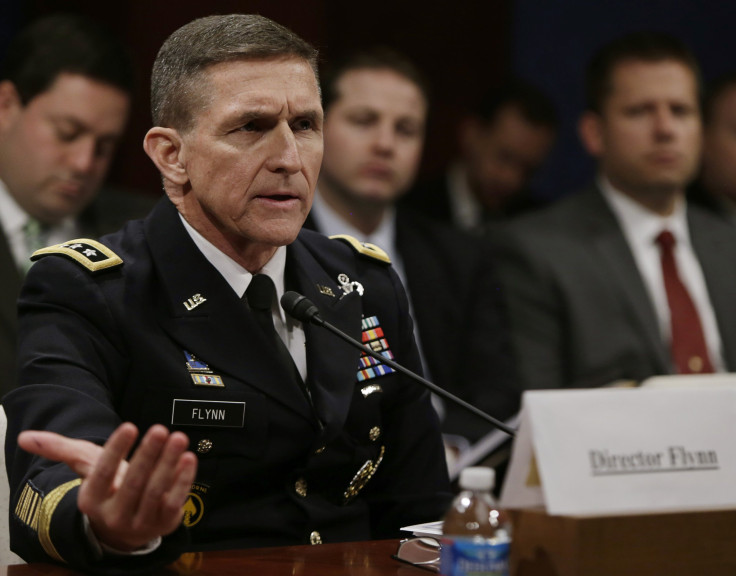'Willful Ignorance': Former DIA Head Michael Flynn Says Obama Needs To Rethink Middle East Policy

President Barack Obama's Middle East policy is one of "willful ignorance," a former director of the Defense Intelligence Agency said during a TV interview Sunday. Retired Army Lt. Gen. Michael Flynn, who led the DIA from 2012 to 2014 after being appointed by Obama, told host Chris Wallace on "Fox News Sunday" that the president's administration needs to improve its strategy for dealing with conflicts in the volatile region.
Flynn noted that Iran has been influencing events throughout the Middle East and could even be trying to ignite a "regional sectarian war." He added that Obama's policies haven't seemed to help thwart Iran's plans.
“At the end of the day, we have just this incredible policy confusion," Flynn said. "Never mind what our strategy is to execute that policy. We have to stop what we’re doing and take a hard look at everything going on the Middle East because it’s not going in the right direction."
During the interview, host Wallace noted that under the Obama administration, the United States seems to have conflicting allegiances, for example aiding Iran-backed rebels against the Islamic State group in Iraq and Syria while simultaneously opposing such fighters in Yemen.
Meanwhile, Flynn noted that the Obama administration is trying to negotiate a nuclear deal with Iran amid the possibility that the U.S. might not be fully aware of how Iran plans to use nuclear technology. Iran has insisted for years that it is pursuing nuclear power only for peaceful purposes, but critics in the U.S. and elsewhere fear that the government in Tehran is focused on developing nuclear weapons -- with Israel as a possible target. Recent reports indicate that the U.S. will continue nuclear talks with Iran despite suspicions of its role in unrest in Yemen, Syria, Lebanon and other Middle East countries.
“One of the things that we have to keep in mind on Iran," Flynn said, "is Iran is also a country with ballistic missiles, cyber capabilities. They are also still a state sponsor of terrorism. And here we are dealing with them as though we're going to give them a carte blanche.”
© Copyright IBTimes 2024. All rights reserved.






















